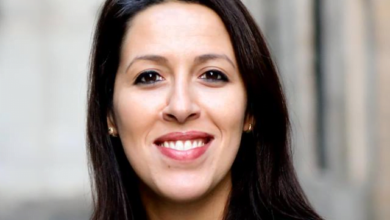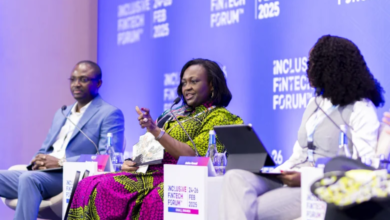Oil, Gas… and Tech, the new Algeria takes shape
While oil and gas revenues continue to support the Algerian economy, diversification is becoming a reality, and the country is nurturing new ambitions. Agriculture, green hydrogen, digital... All projects are underway with one goal: a GDP exceeding 400 billion dollars by 2026.

In a report published last April, the IMF predicted that Algeria would, for the first time, climb onto the podium of African economies in 2024. According to this report, the Algerian economy is set to become the second largest on the continent, surpassing Egypt with an estimated GDP of 348 billion dollars. This remarkable performance is explained by a combination of factors, including post-pandemic economic resilience and effective economic strategies.
Rather than using oil and gas revenues to buy social peace, a new path is emerging, allowing Algeria to aim for the second place among African economies
Alexandre Mirlicourtois, Director of Economic Forecasting at Xerfi, stated in an interview with a local media that Algeria’s economic transformation no longer relies solely on oil and gas revenues. He explains: « Rather than using oil and gas revenues to buy social peace, a new path is emerging, allowing Algeria to aim for the second place among African economies. » And the country harbors new ambitions. Last March, the President of the Republic, Abdelmadjid Tebboune, sharing his optimistic forecasts, predicted a GDP exceeding 400 billion dollars by 2026. Is this achievable?
A key player in the global energy market
Indeed, Algeria has been able to take advantage of the new global energy map. With the reorientation of Europe’s gas supplies and the maintenance of high oil and gas prices, the country positions itself as a key player in the global energy market. Algeria is the 10th largest natural gas producer in the world and the largest African LNG exporter, consolidating its place in the global top 10. For decades, Algeria has played a central role in Europe’s natural gas supply, particularly thanks to its vast gas reserves. Mohamed Arkab, Minister of Energy and Mines, recently emphasized the importance of projects such as the Maghreb-Europe Gas Pipeline and the trans-Saharan pipeline linking Nigeria to the Mediterranean via Algeria and Niger.
This latter project aims to diversify Europe’s gas supply sources while promoting the socio-economic development of the countries it traverses. Additionally, Algeria is actively working to become a major player in the hydrogen field, with initiatives aimed at transporting renewable hydrogen produced in Algeria to Germany via Tunisia, Italy, and Austria. In the meantime, Algeria also envisions itself as a future leader in renewable energy, thanks to its abundant solar and wind resources. The country aspires to establish a solid partnership to become a regional energy hub, notably through projects like the electrical interconnection between the North and South of the Mediterranean, which would benefit from a three-billion-dollar fund to strengthen renewable energies and supply African countries with clean electricity. Moreover, Algeria plans to invest in the production and export of renewable hydrogen, with the goal of supplying 10% of Europe’s green hydrogen needs by 2040.
On the path to diversification
Beyond the energy sector, Algeria is embarking on an ambitious economic diversification. The country has attracted foreign investments by abolishing the 51/49 rule, perceived as an obstacle to FDI. An investment plan of over 50 billion dollars is planned between 2024 and 2028 in oil and gas, with projects such as the exploitation of iron ore, zinc, lead, and phosphate deposits.
In the agricultural sector, the Algerian-Qatari giant farm project in the Algerian desert, with a 3.5 billion dollar investment, aims to produce powdered milk. Additionally, industrial projects such as the Relizane textile complex, in partnership with Turkey, and developments in the pharmaceutical and automotive industries, demonstrate the dynamics of economic diversification.
An ambitious policy for digital Transformation
Algeria is also betting on startups and the knowledge economy. The success story of Yassir, a ride-hailing app that became the most valued startup in North Africa, is a prime example. With over 200 million dollars raised, notably from Silicon Valley, Yassir embodies the potential of the Algerian digital sector. Digital technology is a major lever for Algeria’s economic and social development. Aware of this issue, the public authorities have implemented an ambitious policy for the country’s digital transformation. This strategy is supported by the commitment of the President of the Republic, who insists on digitization as a national priority to improve connectivity, generalize the use of ICT, and strengthen economic governance.
Numerous measures have been adopted to moralize public life, promote transparency, and develop a digital economy based on data exploitation, with the aim of combating bureaucracy and promoting participatory democracy. Despite notable progress, sectoral disparities persist, hindering the growth of a true digital economy. Digitization progresses differently across sectors, particularly those with an administrative focus. The President has announced the creation of a High Commission for Digitization to strengthen coordination and integration of digital initiatives. A collaborative and practical approach is necessary to implement identified projects, with the active participation of citizens and economic operators, to build a modern digital society founded on good governance, citizenship, and technological innovation.
Meanwhile, infrastructure development is a priority, with projects like the Trans-Saharan Highway that will accelerate trade with African countries, thereby enhancing Algeria’s regional influence.






